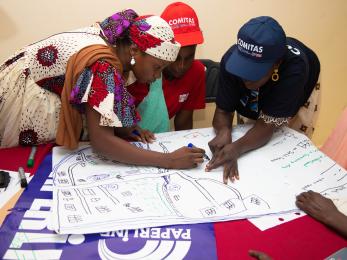Sudan’s Hunger Catastrophe: Ending the Silence

Over 25 million people—nearly half the population—require urgent assistance to survive, and people are already dying of starvation in parts of the country. Yet, despite staggering needs and increasing disregard for International Humanitarian Law (IHL) by all conflict parties, the Sudan crisis has not been prioritised by donors nor diplomats.
As the situation continues to deteriorate for millions of people, there is no time to waste to prevent further suffering and death. Global leaders should take urgent and bold action to help bring an end to violence against civilians, ensure the delivery of principled humanitarian assistance, and provide sufficient funding for an immediate scale-up of the humanitarian response.
Key recommendations:
- Coordinate a peaceful, inclusive and sustainable political resolution to the conflict: All states and institutions involved in mediation efforts to reach a ceasefire in Sudan should coordinate and unite, instead of working on fragmented initiatives that undermine each other. They should also ensure the meaningful participation of Sudanese civil society into the peace process, especially women and youth.
- Ensure respect for IHL, including the obligation to allow and facilitate free and unfettered humanitarian access and to ensure the protection of civilians: All State signatories to key IHL instruments, the U.N. Security Council, and U.N. senior officials should take stronger action and use all diplomatic tools at their disposal to urge parties to the conflict to prioritise respect for IHL.
- Donors should immediately allocate and disburse the $2.56 billion still required to fully fund the 2024 Sudan Humanitarian Response Plan, allowing humanitarian actors to reach more people in need and prevent further starvation. Considering the current famine warnings for the lean season, there is no time to waste. The majority of funds should be allocated immediately and increasingly in the form of cash-based programming and direct support to local responders and actors.
- Heed famine warnings and urgently lead a coordinated and complementary response that addresses urgent needs whilst building recovery and resilience. This should include making cash programming a key pillar of the humanitarian response while continuing to strengthen functional markets and food systems and support local agricultural production, especially ahead of the next planting and harvest seasons.


